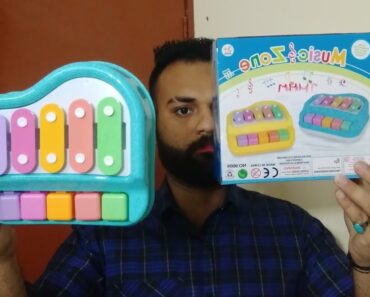Don’t worry about catching your kid up on everything they missed with COVID school shutdowns, but if you’ve got a kid who is struggling to learn to read, focus on these skills over the summer.
Grade one is a critical time for learning to read and some experts are worried that time out of the classroom for COVID shutdowns has caused serious delays in acquiring this essential skill. Preliminary findings from a Toronto District School Board analysis found that in October 2020, kids who were in in-person school were three percentage points behind where grade 1 kids were in October 2019 on diagnostic reading assessments. Kids in virtual school fared even worse—in January 2021 those grade 1 kids were 9 percentage points behind grade 1 kids in January 2020. With all of Ontario doing remote schooling from mid-April until the end of June, those gaps are likely wider now.
Meanwhile in Alberta, an analysis by University of Alberta faculty of education professor George Georgiou found kids in grades 1 to 3 in a sampling of school districts who were already showing reading difficulties were now six months behind where they should have been.
For kids who struggle with reading, there’s a critical window in the early grades to solidify skills, so waiting for the teacher to catch them up might not be the best approach. You can make reading over the summer fun by keeping sessions short and sweet—just a few minutes a day will go a long way towards gaining these skills. And remember—all reading is reading, whether it’s a graphic novel, a Pokemon card or the back of a cereal box.
We spoke to Liisa Freure, a former elementary teacher and reading expert who tutors kids struggling to learn to read for some practical tips to help your kid learn to read.
Focus on sounding out: When kids learn to read, they need to match letters or combinations of letters to sounds, explains Freure. “If they sound out, or decode a word successfully a few times, then that word transfers into their sight vocabulary, which means when they see that word, they can remember what that word is, rather than having to sound it out each time.” If you find your kid is guessing based on context or pictures, cover up the picture or have them practice reading short, easily decodable words (think “cat,” “dog,” “sun”) that are not in context.
Find decodable readers: The books you’ve likely seen in your kid’s classroom or sent home from school are typically levelled texts. The levels are determined by things like length of sentence and how many high-frequency words there are in the book. The thing is, in the English language, the highest-frequency words are also the oldest ones in the language and are not very “decodable,” meaning you can’t sound them out using conventional rules. Words like “they,” “said” and “talk” are good for a kid to recognize, but don’t actually help them solidify letter-sound relationships.
Decodable readers, like the well-known Bob books, are a great way for your kid to start to learn the patterns of language. The International Dyslexia Association also has a list of decodable readers. Once your kid has a good grasp of foundational decoding skills, they can use them to sound out harder words.
Get them curious about words: English can be a very confusing language to learn—there are many rules and the rules often get broken. Instead of saying “Oh, English is so confusing,” get them curious about different spellings and letter sounds, suggests Freure. For example, kids often wonder why the word “talk” has an L in it. Freure tells her students. “Well, we’re telling a tale, and the words “tell” and “tale” both have Ls in them. The word talk has an L in it because it’s related to those other words.” Encourage your kid to find other strange spellings in the book and find out together what the origin is of the word (a quick google will tell you!) and why it’s spelled that way.
Teach them about suffixes and prefixes: “Every word has a base, and then we can add things to the base,” says Freure. Show your kid what common suffixes (ie: s, ed, er) and prefixes (ie: re, un, in) look like and what they mean. When your kid is faced with a longer word, they can look for these parts of words to help them sound it out.
Keep reading to them: When your kid is learning to read—and even after they’ve mastered the skill and have moved on to reading for pleasure—it’s important to keep reading to them to help them develop vocabulary beyond what’s in the books at their level. “You don’t want to just focus on the phonics piece of it,” says Freure. “We want to make sure that we’re not just thinking about the decoding, but that rich exposure to language.” Reading chapter books together as a bedtime ritual or on a blanket on the beach or in a park is a perfect way to keep this up over the summer.

































